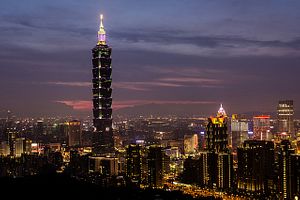Taiwan’s future is frequently presented as one of three scenarios. The first is its successful declaration of independent sovereignty with international recognition and China’s acceptance of its new status. The second is the long-term continuation of the current uneasy status quo, and the third is China’s use of force to achieve reunification with the island.
The third scenario is often seen as the most probable. This is partly because nationalistic pressures in both China and Taiwan have grown dramatically over recent decades and will continue to do so. The two are on divergent political trajectories which will make the current status quo increasingly difficult to maintain. And whereas China historically lacked the necessary capabilities to transport an army across the Taiwan Strait, especially against U.S. intervention, the modernization of the People’s Liberation Army now make its threats of an enforced reunification much more potent.
Some argue that the economic and political costs of a forced reunification will deter China from such action. Such a sanguine view, however, underestimates the power of nationalistic sentiments over economic rationality. History is after all littered with examples of political actions that came with significant economic costs. But should China decide that the use of force would be too disruptive to its regional geopolitical and economic aims, then there is a fourth potential scenario: the Cuba option. China could adopt a comparable strategy toward Taiwan as the United States did toward Cuba.
This scenario reflects the situational similarities between Cuba and Taiwan. Both are in close proximity to the regional superpower and both have substantial ideological and political differences with their larger neighbor. While Taiwan is politically dependent on the United States, a geographically distant partner, Cuba was once reliant on the USSR, another remote ally. Furthermore, there are significant economic asymmetries between them and their neighboring superpowers, which in the case of Cuba, the U.S. weaponized to the smaller country’s detriment.
As background, Cuba was heavily dependent on the United States before sanctions were imposed in 1960. More than two-thirds of Cuba’s trade was with the U.S. and the larger neighbor was the country’s main source of capital. But over the last six decades, Washington has steadily ratcheted up measures to ensure Cuba’s near complete economic isolation. This stranglehold is maintained despite little evidence that the sanctions have achieved their desired outcomes, and in the face of persistent international criticism. But as a result, Cuba lurches from one economic crisis to another.
It is not difficult to imagine China pursuing a similar approach toward Taiwan, especially as the regional superpower has already demonstrated a growing willingness to use economic power to advance its foreign policies. China has leveraged access to its massive markets to encourage others to recognize its claimed sovereignty over Taiwan. It has also used Taiwan’s strong economic links with the mainland to both reward and punish the island, depending on circumstances.
But the consequences of these actions have been minor compared to the potential implications of a more comprehensive sanctions policy. Although China is yet to define its approach toward sanctions, especially relative to its international objectives, it has to be assumed that China will eventually weaponize its economic power to achieve greater influence – especially as the United States has already established substantial precedent on the use of sanctions, as demonstrated by Cuba’s and China’s own experiences.
As the United States did with Cuba, China could use sanctions to isolate Taiwan economically. A complete trade embargo may be impossible given how China views Taiwan’s status. But foreign corporates doing business in Taiwan or with Taiwanese entities could find themselves explicitly prohibited from the mainland or excluded from supplying any Chinese entity. And it is not difficult to predict the choice companies will make if forced to choose between Taiwan and China. In fact, depending on the specific policies adopted, China could either use sanctions to increase Taiwan’s economic dependency on it or to impose punitive costs on the island.
It is true that there are several potential caveats to this scenario.
The first is that Cuba shows the limitations of sanctions as a political tool. The United States may have hoped that the measures applied would encourage Cuba’s people to agitate for change or for the state to change its ideology. But neither has been achieved. The risk is that a similar policy toward Taiwan will be equally unsuccessful. Isolating Taiwan internationally could in fact accelerate the island’s declaration of independence, although this would trigger a military response by China.
The second is that China’s ability to wield unilateral sanctions is still limited by its own economic vulnerabilities. Not only is it still dependent on the imports of semiconductors from Taiwan but it remains vulnerable to U.S. counter-sanctions, especially if they excluded China from the U.S. dollar financial markets. However, these vulnerabilities will decline significantly over the next decade and as they do, China’s ability to implement its own sanctions policy will increase correspondingly.
Taiwan will be the U.S.-China flashpoint in the same way Cuba was for the United States and USSR. But the manner through which the U.S. resolved its Cuba problem could also be adopted by China toward Taiwan, at least in a modified manner. The challenge is whether this will be enough to achieve China’s desire for reunification, especially ahead of the 2049 centenary of the People’s Republic of China. But either way, it is difficult to envision a scenario that ends well for Taiwan.
William Bratton is the author of “China’s Rise, Asia’s Decline.”

































